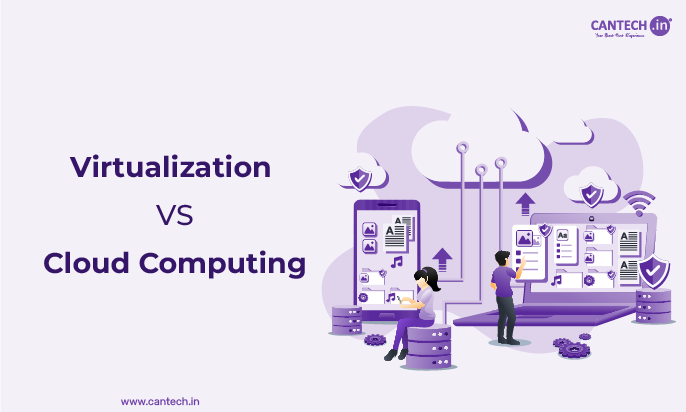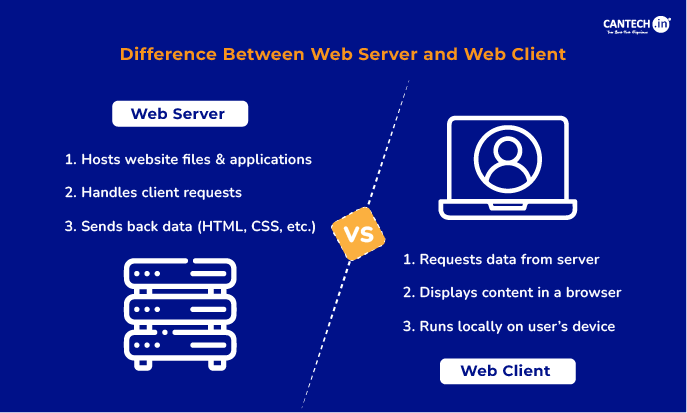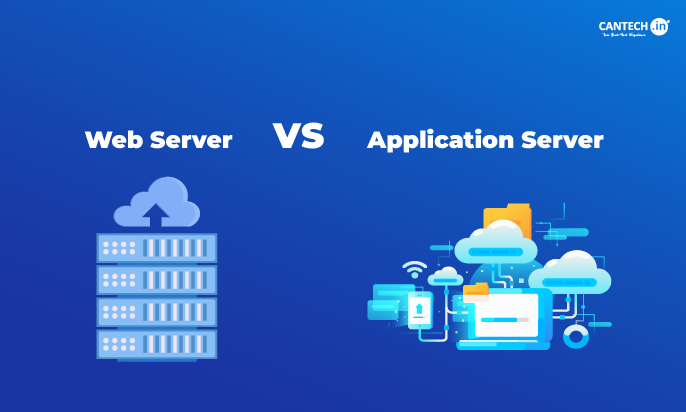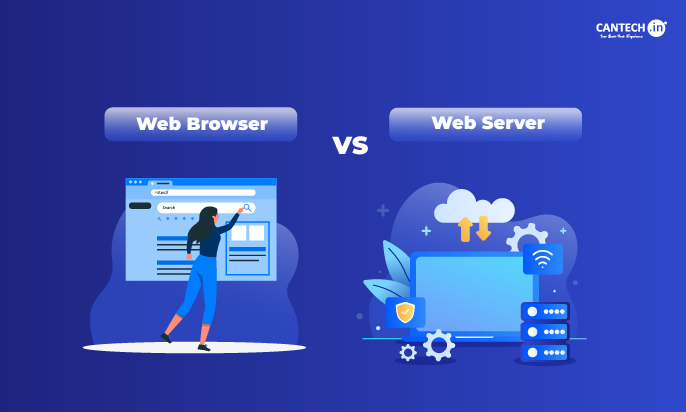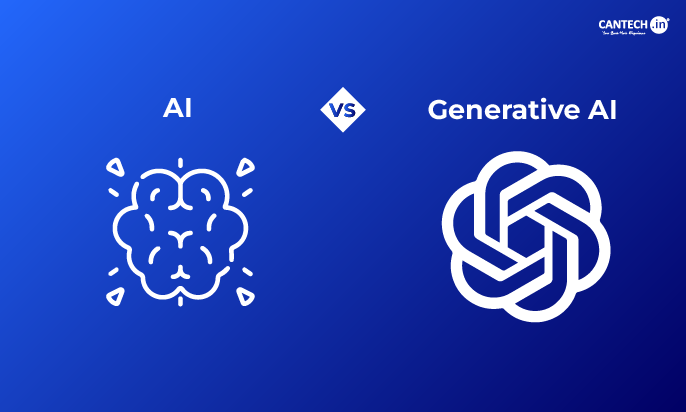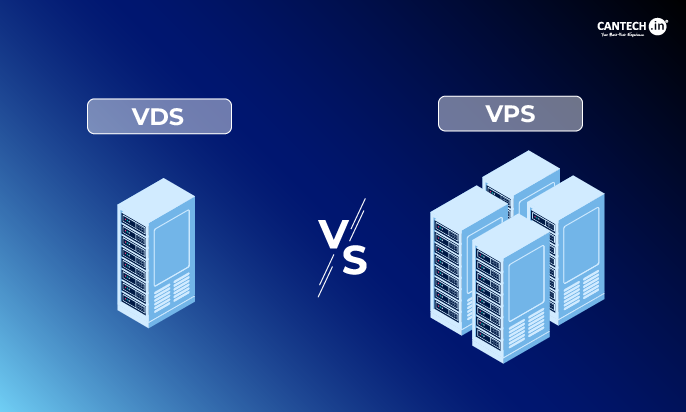Virtualization contrasts with cloud computing in that while they offer avenues for organizations to optimize their infrastructure further efficiency, cost-effectiveness, and scalability, the architects of these two great paradigms have developed their business predictions and snowballed chances on their pros and cons. It does not matter in which category the company belongs: startup, mid-sized, or large: choosing the right technology to support your organization’s working processes is a key decision. Among others, virtualization and cloud computing stand right out from the rest. They go hand in hand, but their purpose varies significantly; understanding this difference could make the point between smooth sailing and your business’s future-proofing.
Cantech Networks is completely designed to provide virtualization-smart cloud services that keep businesses ahead in a rapidly growing digital landscape. With high-performance dedicated servers, VPS hosting that allows scalability, and fully managed cloud solutions backed by expert service, complete 24/7 support, and enterprise-level security are what we aim to achieve. With Linux & Windows VPS Hosting, you can efficiently run numerous virtual instances. At the same time, our Cantech Cloud PAAS meets your needs as it grows, leaving you less concerned with infrastructure management.
This article will help you clearly understand the key differences in virtualization vs. cloud computing for better IT decision-making.
What is Virtualization?
Imagine having a single, powerful machine, but instead of using it to run just one application, you can split it into multiple independent environments that work simultaneously. Virtualization, a technology that allows a business to create virtual instances using a single hardware resource. In effect, it means running different OSes, different applications, or storage environments from the same server augmenting efficiency whilst reducing overheads.
Read More on What is Virtualization, it’s types and how it works.
Why Do Businesses Choose Virtualization?
- Maximized Resource Utilization: Hardware is never left idle with virtualization, instead; almost every bit of your infrastructure is used to its full potential.
- Significant Cost Savings: Spending a large amount on the hardware is goodbye here: virtualization shrinks capital expenses and operational costs.
- Unmatched Scalability & Flexibility: Add resources very quickly when your business grows, without worrying about physical limitations.
- Top-Tier Security & Isolation: Virtual machines (VMs) allow applications to operate in different environments, increasing security.
- Seamless Disaster Recovery: If there is a flow, VMs can be created, backed up, cloned, and restored from disk completely automated.
How Does Virtualization Work?
Central to virtualization technology is the software layer called a hypervisor, which allows the abstraction of physical hardware so that several operating systems can be used simultaneously. VMware, Microsoft Hyper-V, and KVM are some of the best hypervisors that have powered some of the most effective IT infrastructures.
Types of Virtualization:
- Server Virtualization: One physical server serves multiple virtual servers, each running its independent application.
- Network Virtualization: Software networks combining all the above provides more agility and security across various applications.
- Storage Virtualization: Use multiple physical storage devices as a single high-speed storage device.
- Data Virtualization: Scatter data from different sources so that it may be read and integrated all together without the duplication of physical storage.
Want high-performance VPS hosting at an affordable rate? Check out our Linux VPS Hosting and Windows VPS Hosting, which feature SSD-powered virtual servers with full root access for ultimate control and performance.
What is Cloud Computing?
Cloud computing refers to the next evolutionary path the IT infrastructure will take. These services, due to cloud computing, are chosen and dominantly accessed instead of ownership and maintenance of traditional on-site servers by many companies. This implies that cloud computing allows everyone in the world to deploy computing resources like servers, databases, storage, or software from anywhere, in essence without having to deal with the problem of maintenance concerning hardware.
Why Are Businesses Moving to the Cloud?
- On-Demand Resources: Instantaneously scale up or down resources based on workload with no overprovisioning and no wasting money on unused capacity.
- Pay-As-You-Go Model: Pay only for what you use-there are no hidden fees or excessive costs, which makes it budget-friendly for startups and big enterprises.
- Global Accessibility: Empower remote teams, collaborate in real-time, and guarantee uninterrupted access to business-critical applications to anyone, anywhere in the world.
- Automatic Updates & Security: This means that throughout the year, the provider takes care of all software updates, security patches, and performance optimizations, thus rescuing your business from many cybersecurity threats.
Different Types of Cloud Computing:
- Public Cloud: A cost-effective cloud solution that is nothing but a shared environment working upon third-party platforms, like the ones offered by AWS, Google Cloud, and Microsoft Azure. It is great for startups and businesses alike searching for easily scalable infrastructure.
- Private Cloud: An infrastructure created and operated for the benefit of a single organization and comes with improved security, compliance, data, and application control.
- Hybrid Cloud: This indicates a mix of private and public cloud setups that allow users to have the best of all worlds. This provides greater capabilities, flexibility, and security while optimizing costs.
- Multi-Cloud: This involves a blend of cloud providers extending service redundancy, security, and avoiding vendor lock-in.
How Cantech Can Help?
Need a scalable cloud solution for your business? Our Cantech Cloud PAAS seamlessly delivers cloud infrastructure enabling you to focus on developing your business while we take care of the back-end IT operations. We will deliver a highly secure and productive cloud environment from launching your eCommerce platform to running an AI application and managing enterprise databases.
Virtualization vs. Cloud Computing: Key Differences
Having a core understanding of the major differences between virtualization and cloud computing is critical for businesses wanting to optimize their IT infrastructure. While both technologies improve efficiency, lower costs, and enhance scalability, they have different purposes.
| Feature | Virtualization | Cloud Computing |
| Definition | Creates multiple virtual environments on a single physical machine. | Provides on-demand computing services over the internet. |
| Infrastructure | Operates on on-premise hardware, requiring in-house management. | Uses third-party cloud providers like AWS, Azure, and Google Cloud. |
| Cost | Requires upfront investment in physical hardware, but reduces operational costs over time. | Pay-as-you-go pricing, with minimal upfront investment. |
| Scalability | Limited to the available hardware capacity. | Instantly scalable on demand, adapting to business needs seamlessly. |
| Management | IT teams need to handle software updates, security, and maintenance. | Managed by cloud service providers, reducing the workload on in-house IT teams. |
| Security | Can be tightly controlled within a company’s own data center. | Depends on the cloud provider’s security measures and compliance standards. |
Additionally, virtualization in cloud computing is distinct from cloud computing in itself. Cloud computing employs virtual resources to create a flexible, scalable, and remotely accessible computing environment, while Server virtualization is a technology that involves stacking multiple Operating Systems on top of a physical server.
So, Which One To Go For Now?
Whether to use virtualization or cloud computing must depend on the exact needs of your business, where they plan to go with their applications in the future, and what technology capability they have. Here’s an elaboration on what might work for you:
When to Choose Virtualization?
- You need unrestricted control of your IT infrastructure. Virtualization enables companies to take care of their own servers, applications, and data in-house.
- Your organization must maintain a very high level of security and adhere to compliance standards. Some federations, from the healthcare and financial sectors, require enhanced control over how data is stored and accessed.
- You will maximize resource utilization in an existing data center by running several operating systems on a single machine rather than investing in several physical servers. You need high-performance computing environments for AI, machine learning, or large data processing. The virtue of virtualization comes into play by optimizing workloads and efficiently distributing resources.
When to Choose Cloud Computing?
- The decision comes down to your need for immediate scalability and flexibility. Right from the start, if you need to scale up due to an increase in demand, or back down again to save cash, then choose cloud computing, which provides such flexibility on the fly.
- You want to cut down on your IT infrastructure costs. Don’t spend such amounts of money on hardware through capital expenses—cloud solutions operate on a pay-as-you-go model, meaning less financial burden on your company.
- You want a fully managed service. With cloud computing, the provider handles system maintenance, software updates, and security patches, allowing your team to focus on innovation and growth.
- Your business can work remotely or online. Cloud solutions provide computing resources from anywhere in the world, allowing for seamless teamwork.
At Cantech, we provide virtualization and cloud computing solutions customized for your company. If you’re puzzled about which one is the right direction to take, trust our experts. They will always guide you through the entire process.
Experience the Best of Both Worlds
Cantech sails into harnessing both virtualization and cloud computing and blending them into solutions that are best for any kind of business. You can have high-performance dedicated servers, secure VPS hosting, or even fully managed cloud infrastructure with Cantech.
🚀 Future-proof your business today! Explore Cantech’s services and take your IT infrastructure to the next level!
Conclusion: The Future of IT Infrastructure is Here
In today’s world, fast-paced trends like virtualization and cloud computing have become the key drivers to ensure businesses are agile, cost-efficient and have increased functional capacity. Suppose, the former promotes the efficient use of hardware with the capacity to host multiple systems within one physical machine. In that case, the latter enables a convened customization of scalability where one does not need to worry about the structure for a huge on-site installation. Depending on the nature of your business model, you can choose any or in certain conditions, combine both.
At Cantech, we have launched a fully functional offering of virtualization and cloud computing solutions keenly catered for businesses of all sizes. From economical VPS hosting through high-performance dedicated servers to a full-blown managed cloud infrastructure, our solutions will give you impeccable integration, rock-solid security and 24/7 support.
Get Started with Cantech Networks
Whether you opt for virtualization or cloud computing, Cantech Networks is driven to provide the best possible solutions to meet your IT requirements.
- Dedicated Servers – Powerful, high-performance servers carefully built according to your needs.
- VPS Hosting – Powerful, high-performance servers carefully built according to your needs.
- Managed Cloud Services – Secure, fully managed cloud service businesses of all sizes can rely on.
- Domain & SSL Services – Secure your online presence by registering a domain and with SSL certificates.
- Email Hosting – Reliable, professional business-level email solutions. Available also within Google Workspace and Microsoft 365.
Why Choose Cantech Networks?
- 99.9% Uptime Guarantee – Rest assured, we deliver powerful, stable service without interruptions.
- 24/7 Expert Support – Experts are always there for you.
- Affordable Pricing – Affordable plans for everybody, from startups to SMBs to enterprises.
- Scalable & Secure Infrastructure – We protect your data while offering unlimited growth potential.
🚀 Ready to transform your business? Explore Cantech Networks’ full range of services and take your IT strategy to the next level!
Get Started Today!
Head on to Cantech Networks to find powerful, reliable, and scalable hosting solutions customized based on your needs!
FAQs on Virtualization vs. Cloud Computing
1. What is the difference between virtualization and cloud computing?
Virtualization uses a single machine to run multiple virtual environments. This allows for an effective use of hardware. Cloud computing allows providing computing resources over the internet so scalable and flexible resources can be provided on-demand.
2. Can virtualization work without cloud computing?
Yes, Virtualization can run as on-premises without depending on cloud infrastructure. Businesses can optimize their servers and desktop solutions through virtualization while gaining additional remote accessibility and resource pooling with cloud computing.
3. What is better, virtualization or cloud computing?
The best choice depends on the business requirements. Virtualization is appropriate for companies wanting complete control over IT infrastructure with high security. Cloud computing, on the other hand, allows for scalable and remote access to IT resources.
4. What are the security risks surrounding cloud computing?
Security risks include data breaches, unauthorized access, and compliance concerns. However, good cloud providers give implementation of several disruptive security techniques, including encryption, multi-factor authentication, and audit assays to mitigate the risk.
